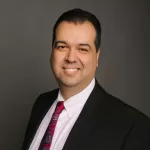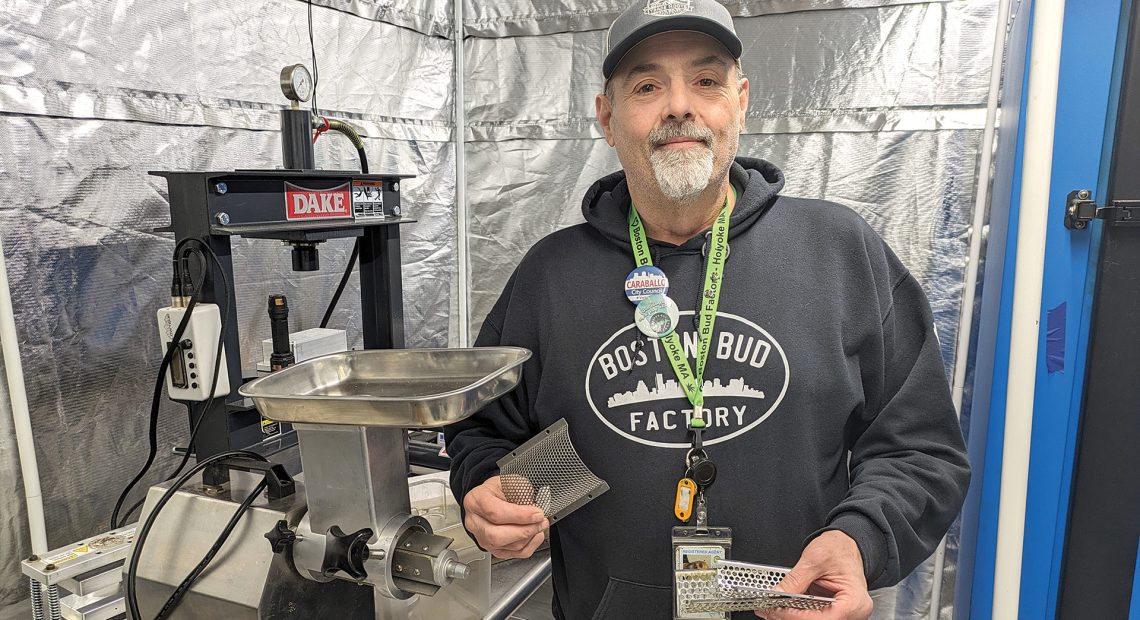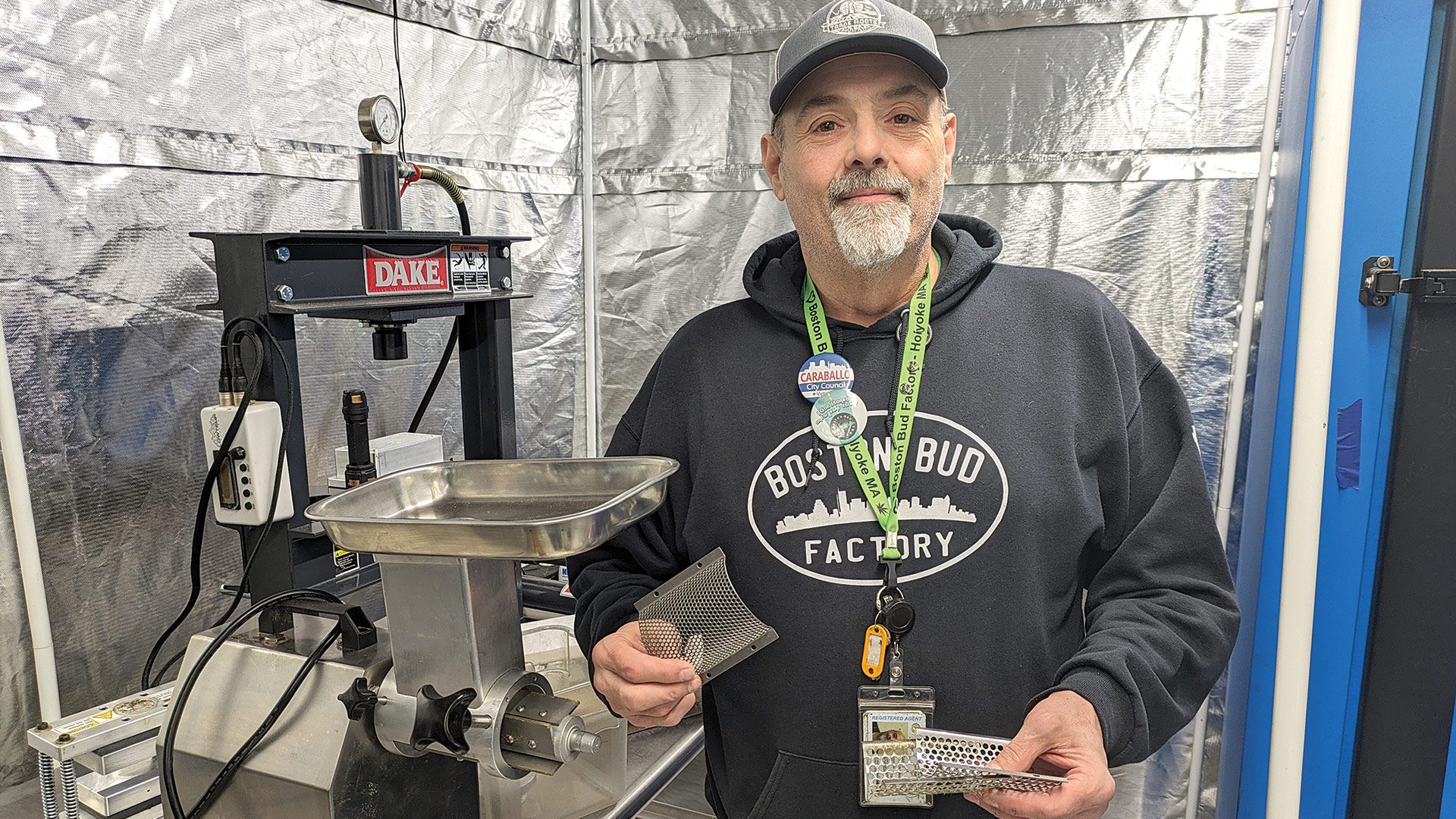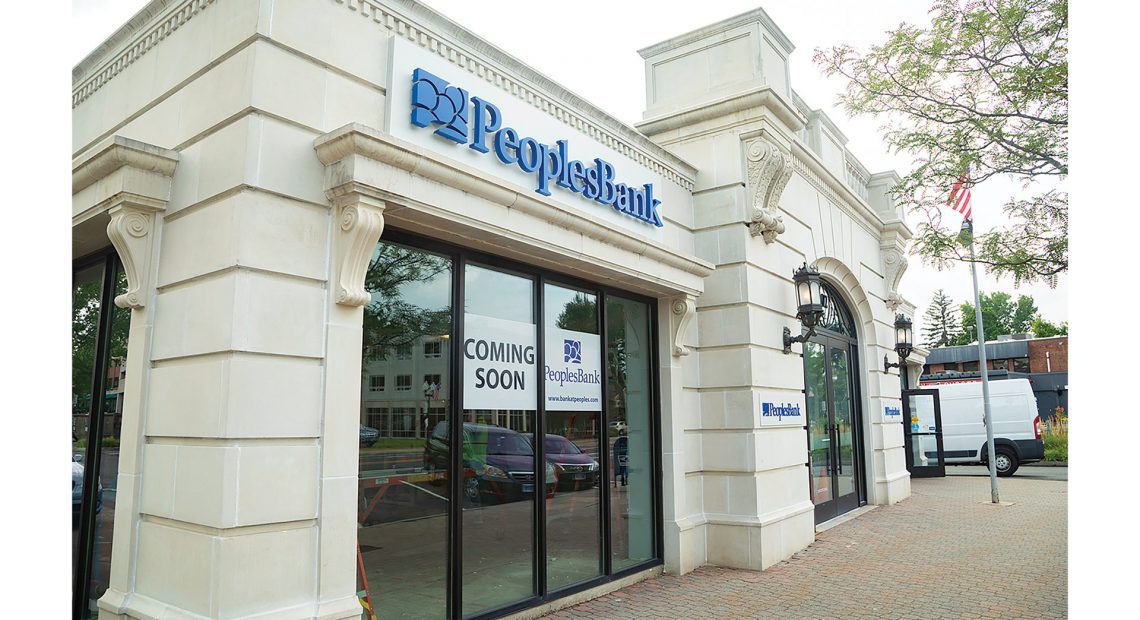Lending Perspective
Tom Senecal has been president, CEO, and chairman of PeoplesBank since 2016, and moving forward, he’s shedding the ‘president’ part of that title. But that doesn’t mean he’s slowing down.
“It’s more of a transition of the daily responsibilities,” he said, explaining why Brian Canina has been promoted to president and chief operating officer, and Hayes Murray has been promoted to executive vice president, chief financial officer, and treasurer, taking on some of Canina’s former duties.
“I reassigned to Brian three or four different responsibilities, but when you look at both of us, it’s still a lot on both our plates,” said Senecal, who retains his CEO and chairman titles. “This is a recognition of Brian’s success and talent and the timing of the growth that we’re going through. And quite frankly, the operational side of things needs more daily attention. And Brian really has the fortitude, the wherewithal, the work ethic, and the strategy to execute all the daily operational things. So it just made sense at this point in time to transition those responsibilities.”

Tom Senecal
“This is a recognition of Brian’s success and talent and the timing of the growth that we’re going through.”
After working together for almost 15 years — Canina as CFO and controller, Senecal as president and CEO — it just made sense to reward Canina for him efforts, Senecal added, “and, quite frankly, to make sure that we have our eyes on the ball as we continue to grow.”
Canina said he has prepared for this transition over the past year or two, operating in more than just a CFO role, and more like a COO, driving strategic initiatives and monitoring and managing the strategic plan of the bank along with Senecal.
“That will continue to be a focus of mine going forward, taking more responsibility away from Tom in terms of administratively managing the strategic plan and working with him as he identifies other strategies that he’s working on,” Canina explained. “So it’s not really a significant change; it’s something that we’ve been working toward, and with the size of the bank and how we’ve grown, it was a good timing to make this more formal change.”
The leadership changes will provide Senecal with more opportunities to plan and manage the growth and revenue activities of the bank, including retail operations, consumer lending, small business, municipals, and commercial and industrial divisions. Canina will continue to be responsible for finance, facilities, PeoplesWealth, the Business Solutions Group, and information technology. In his new role, he will also be responsible for human resources, marketing, and corporate responsibility.
“I’ve kind of shed some meeting responsibilities and a few of the operational responsibilities, but my focus is on growth,” Senecal said. “We have both an organic strategy of growing the bank by opening branches, and also non-organic opportunities. We’re constantly having conversations with other banks, and we will never be bought or sold, but we are looking at opportunities with other banks that might want to partner with PeoplesBank.”
Connecticut in particular continues to present growth opportunities. After adding branches in East Granby and Suffield through acquisition, then expanding the bank’s branch footprint into South Windsor and West Hartford, the bank’s board of directors has approved plans to open banking centers in Glastonbury and Avon, in addition to seeking other opportunities for future expansion.

Brian Canina
“It’s something that we’ve been working toward, and with the size of the bank and how we’ve grown, it was a good timing to make this more formal change.”
“Our commercial-lending business has been extremely successful in the Connecticut market,” Senecal noted. “We’ve hired some commercial lenders and residential lenders in the Connecticut market. We’ve always had a large presence on the commercial side, but since we’ve developed the retail side, it has brought us some synergies in the relationships with those commercial customers, bringing them in as retail customers as well. It’s been hugely successful.”
Canina agreed. “We’re at a very important time right now to really continue pushing the growth of People’sBank down into Connecticut and looking into other areas to grow. That’s what we’re really focused on, and I feel confident we’re going to have a lot of success.”
Soaring Assets
The numbers tell the story of PeoplesBank’s recent upward trajectory.
“When I took over as president and CEO in 2016, we were a $1.8 billion bank,” Senecal told BusinessWest. “We ended 2023 just shy of $4.1 billion. So we’ve more than doubled in those seven years.”
The bank also boasts more than 300 employees and operates 20 banking centers across Massachusetts and Connecticut, with an additional five locations when its headquarters, ATM, and VideoBankerITM locations are included, he noted. “That’s quite a bit of recent growth, which is a credit to the hard work of our entire team.”
Over the past couple years, PeoplesBank also began partnering with Zynlo, a digital bank, Senecal said. “That is starting to really take off. When we talk about growth, traditionally, brick and mortar has been our main source of banking growth. With the digital bank, that has taken on a whole different perspective.
“We’ve got different lines of business, and we’re starting a personal banking division of the bank,” he added. “We have the PeoplesWealth division. Those weren’t in existence a few years ago, so these different banking channels are really what’s driving some of our growth.”
Other expansion opportunities exist because of the merger-and-acquisition environment among large banks and how that disrupts a marketplace, Canina said, citing as one example M&T Bank’s acquisition of People’s United Bank. “That acquisition opens up opportunities for us to jump in on the disruption down in the Connecticut market and, in some cases, Western Massachusetts as well, but mostly down in the Connecticut market, which is why we have our sights set on organic growth down there.”
Opportunities will also arise from banks that aren’t faring as well as PeoplesBank, he said, due partly to the compression on interest margins coupled with increased costs for human resources and compliance, as well as coming regulatory changes.
“Some of these smaller banks are really going to be challenged,” Canina explained. “And I think that we’re at a size — more than $4 billion in assets — where we’re in a very good position to partner with another bank that’s smaller and having challenges, so I think there’s going to be opportunity there for us.”
Of course, PeoplesBank continues to grapple with those same headwinds, he added.
“The challenges right now are coming from the interest-rate environment, where the margins have really compressed from the short-term rates coming up and long-term rates coming up a bit, but not as much as the short end of the curve. So we’re paying deposits on the short end and then lending out on the long end, and there’s not a big spread there. It makes it challenging, not just for us, but for all banks.
“At the same time, a lot of the pandemic deposits that came in have started to flow out; people started spending more money, and they have the ability to to move deposits anywhere they want very easily,” Canina continued. “So the industry has been challenged with managing the interest-rate environment and maintaining deposit levels, and I see that continuing into 2024. Depending on what happens with interest rates, it’s not likely going to let up until we see the short end start to come down. And then we’ll face some different challenges when that happens, because most likely there will be some potential recessionary concerns.”
On the residential side in particular, Senecal added, “I think it’s tough for every bank these days, even though interest rates have come down a little bit from their all-time highs in the last 20 years or so. But there’s no inventory. So, even though interest rates are high, what we’re seeing is, when something comes on the market, it sells, and it’s financed. It’s just that the inventory is so low. And that will be a challenge heading into 2024 for almost all banks.”
Hometown Focus
As he broadens his responsibilities in dealing with these issues and working with Senecal and other bank leaders on growth strategies, Canina added that he aims to continue — and grow — PeoplesBank’s commitment to the communities it serves, noting that the bank’s charitable giving continues to be a strength, with almost $6 million donated over the past three years alone, and more than $11 million over the past 10 years.
“I think what really separates us from the larger regional banks and the national banks — we’re so invested in the communities that we’re banking with, and even though we’re contributing the amount of dollars we are back to the community, we’re still paying interest rates that are competitive with any other bank out there.”
Meanwhile, employees donate thousands of hours of volunteer service to area nonprofits and charitable causes, he noted. “More than half of our bank is on a nonprofit board of some sort, and the amount of volunteer hours is very strong; that’s something that all of our employees hold near and dear to them and really keeps them engaged.”













